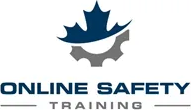WHMIS/GHS Training in Canada

The Importance of WHMIS/GHS Training in Canada
The Workplace Hazardous Materials Information System (WHMIS) and the Globally Harmonized System of Classification and Labelling of Chemicals (GHS) play a pivotal role in safeguarding the health and safety of Canadian workers and the general public. These systems are essential for the safe handling, storage, and transportation of hazardous materials in various industries. In this article, we will delve into the reasons why WHMIS/GHS Training is so crucial in Canada, emphasizing its significance in preventing workplace accidents, protecting human health, and ensuring environmental safety.
- Prevention of Workplace AccidentsOne of the primary reasons why WHMIS/GHS Training is vital in Canada is its role in preventing workplace accidents. Many industries, such as manufacturing, construction, and chemical production, deal with hazardous materials daily. Without proper labeling and communication of hazards, workers could inadvertently expose themselves to chemicals that may lead to accidents, injuries, or illnesses.
- Worker SafetyWHMIS/GHS is fundamentally about ensuring the safety of workers. These systems provide workers with essential information about the hazardous materials they handle, including the potential risks and precautions they should take. Workers who are well-informed about the materials they work with are better equipped to protect themselves and their colleagues from harm.
- Chemical AwarenessWHMIS/GHS promotes chemical awareness among workers. It educates them about the properties and hazards associated with various chemicals, enabling them to make informed decisions and take appropriate safety measures. This awareness is critical in preventing accidents, spills, and exposures.
- Standardization and Global HarmonizationGHS, a global initiative adopted by Canada through WHMIS, ensures that hazard communication is standardized internationally. This harmonization is beneficial for multinational companies, as they can apply consistent labeling and safety data sheets (SDS) worldwide, reducing confusion and enhancing safety for their employees and customers.
- Environmental ProtectionWHMIS/GHS is not only about safeguarding human health but also about protecting the environment. Accidental chemical spills and releases can have devastating ecological consequences, harming wildlife, water sources, and ecosystems. By ensuring the proper handling and storage of hazardous materials, these systems help mitigate environmental risks.
- Prevention of Long-Term Health EffectsExposure to hazardous materials can result in long-term health effects, including chronic illnesses and cancer. WHMIS/GHS helps workers understand the potential health risks associated with chemicals they encounter in the workplace. Armed with this knowledge, they can take precautions to minimize exposure and protect their long-term health.
- Compliance with RegulationsCompliance with WHMIS/GHS regulations is mandatory in Canada. Failing to adhere to these regulations can result in legal consequences, fines, and disruptions to business operations. Employers must provide adequate training and information to employees to ensure compliance, making WHMIS/GHS a critical aspect of legal responsibility.
- Emergency Response PreparednessWHMIS/GHS training includes instruction on emergency response procedures. Workers learn how to react effectively in critical situations, such as chemical spills or exposures. Being prepared for emergencies minimizes their impact and ensures a timely and effective response, which is crucial in mitigating potential accidents and injuries.
- Protection of Vulnerable PopulationsVulnerable populations, such as pregnant women, children, and individuals with pre-existing health conditions, are particularly susceptible to the effects of hazardous materials. WHMIS/GHS helps protect these individuals by ensuring that workers are aware of the risks associated with chemical exposure and take extra precautions when necessary.
- Economic BenefitsImplementing WHMIS/GHS can lead to economic benefits for organizations. By preventing accidents and injuries, companies can reduce workers’ compensation claims, medical expenses, and legal costs. Additionally, a safer workplace often translates into higher productivity and employee morale, contributing to overall business success.
- Promotion of Responsible Chemical ManagementWHMIS/GHS encourages responsible chemical management practices. Employers are encouraged to assess chemical hazards, implement safety measures, and provide proper training and protective equipment to workers. These practices not only protect workers but also promote ethical and responsible business conduct.
- International Trade and CompetitivenessIn an increasingly globalized economy, harmonized hazard communication systems like GHS ensure that Canadian businesses can compete in international markets. Compliance with GHS standards allows Canadian products to be accepted worldwide, promoting trade and economic growth.
WHMIS/GHS is undeniably vital in Canada for a multitude of reasons. It not only prevents workplace accidents and protects workers’ health but also ensures environmental safety and legal compliance. Additionally, it promotes responsible chemical management, emergency preparedness, and economic benefits for organizations.
While these systems are crucial, it is equally important to ensure that employees receive adequate WHMIS/GHS training to fully understand the hazards associated with the chemicals they work with. A well-informed workforce is the key to successful hazard communication and, ultimately, to a safer and more sustainable future for Canada.
Ckick here for online WHMIS/GHS training.
Click here for Federal Regulations for WHMIS/GHS.
Categories
- Aerial Lift
- ATV Training
- Bear Awareness
- Chainsaw Training
- Confined Space
- Defensive Driving
- Forklift Training
- Lockout Tagout
- Online Safety Training
- Overhead Crane
- Pipeline Construction Safety Training
- Propane Handling
- Safety Training Benefits
- Scissor Lift
- Skid Steer Training
- Space Awareness
- TDG
- Telehandler Forklift
- Traffic Control
- Train the Trainer course
- Training Course
- Uncategorized
- WHMIS
- Workplace Harassment and Violence Preventiont
